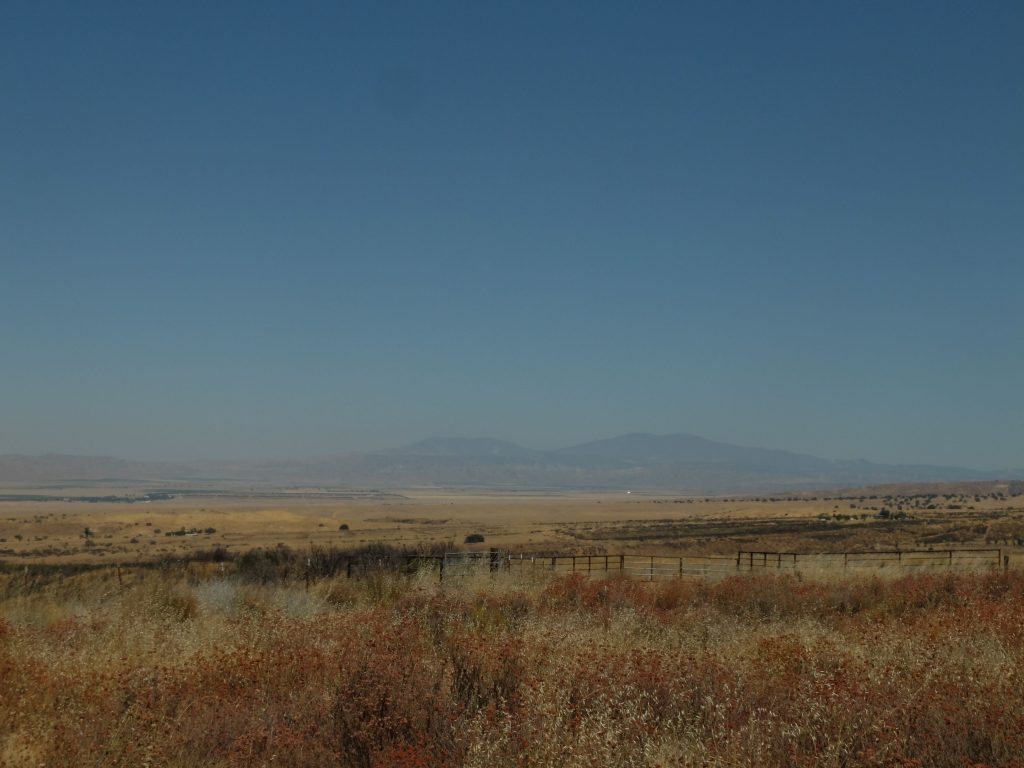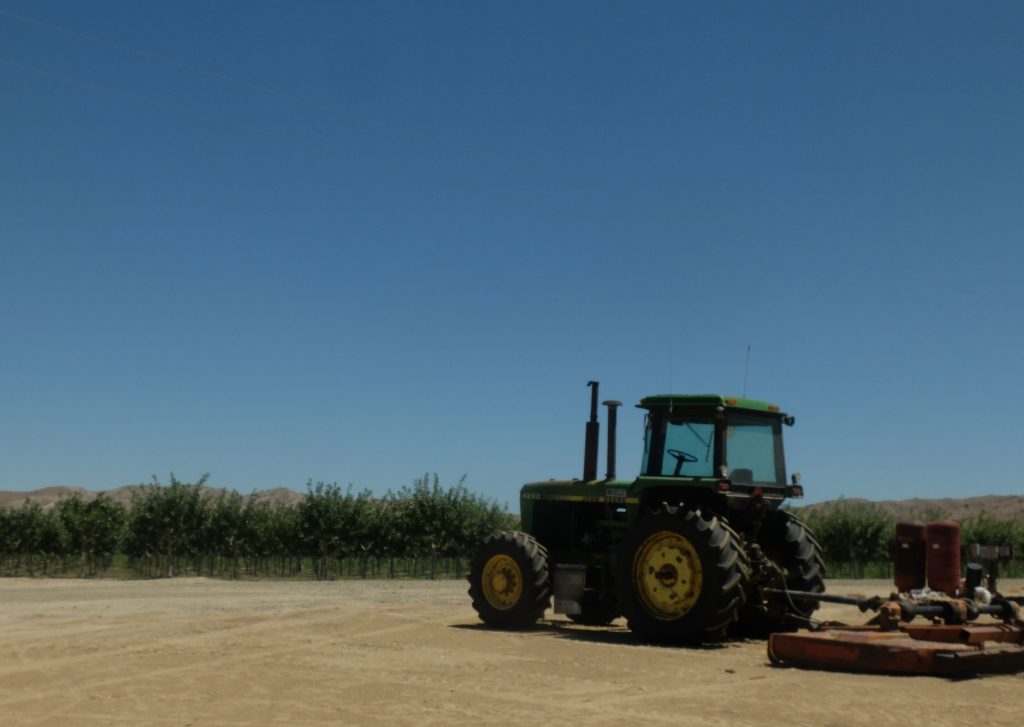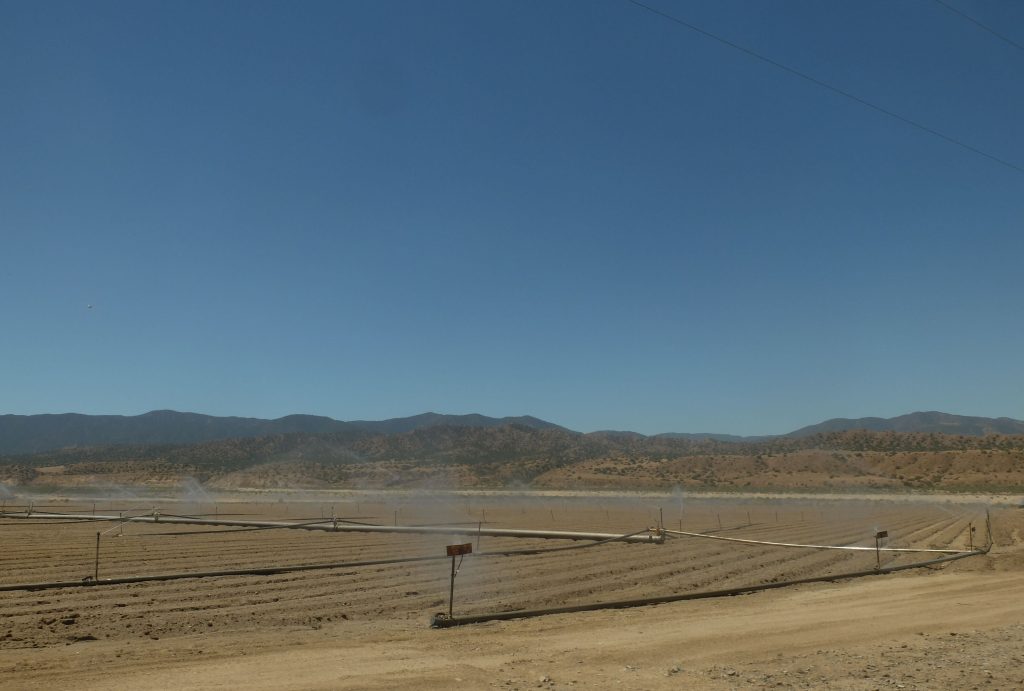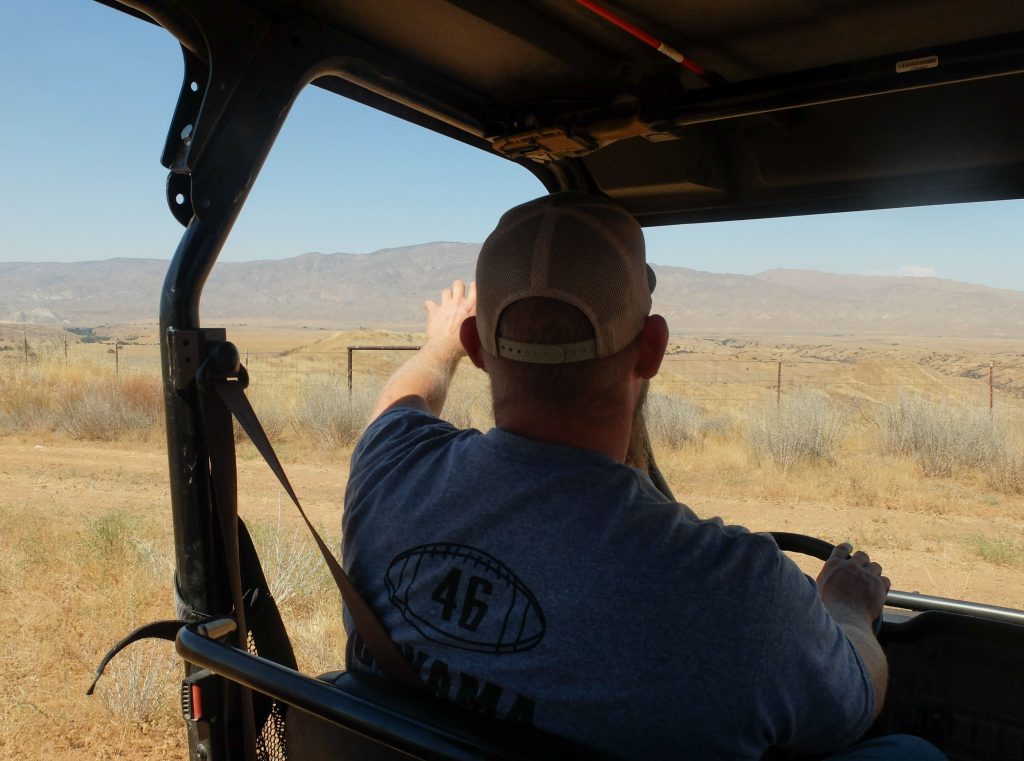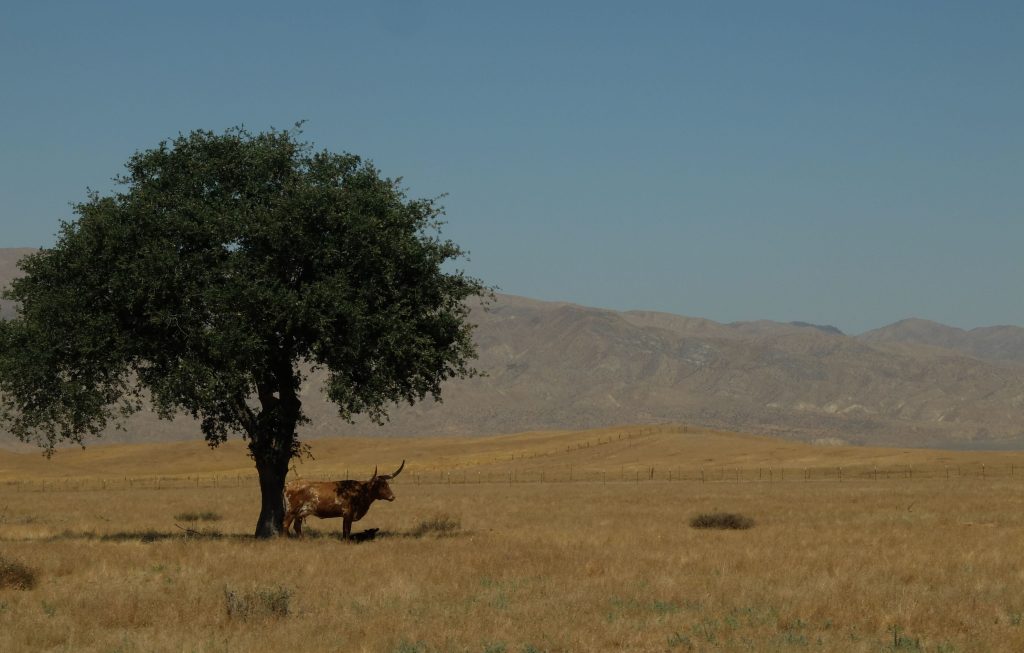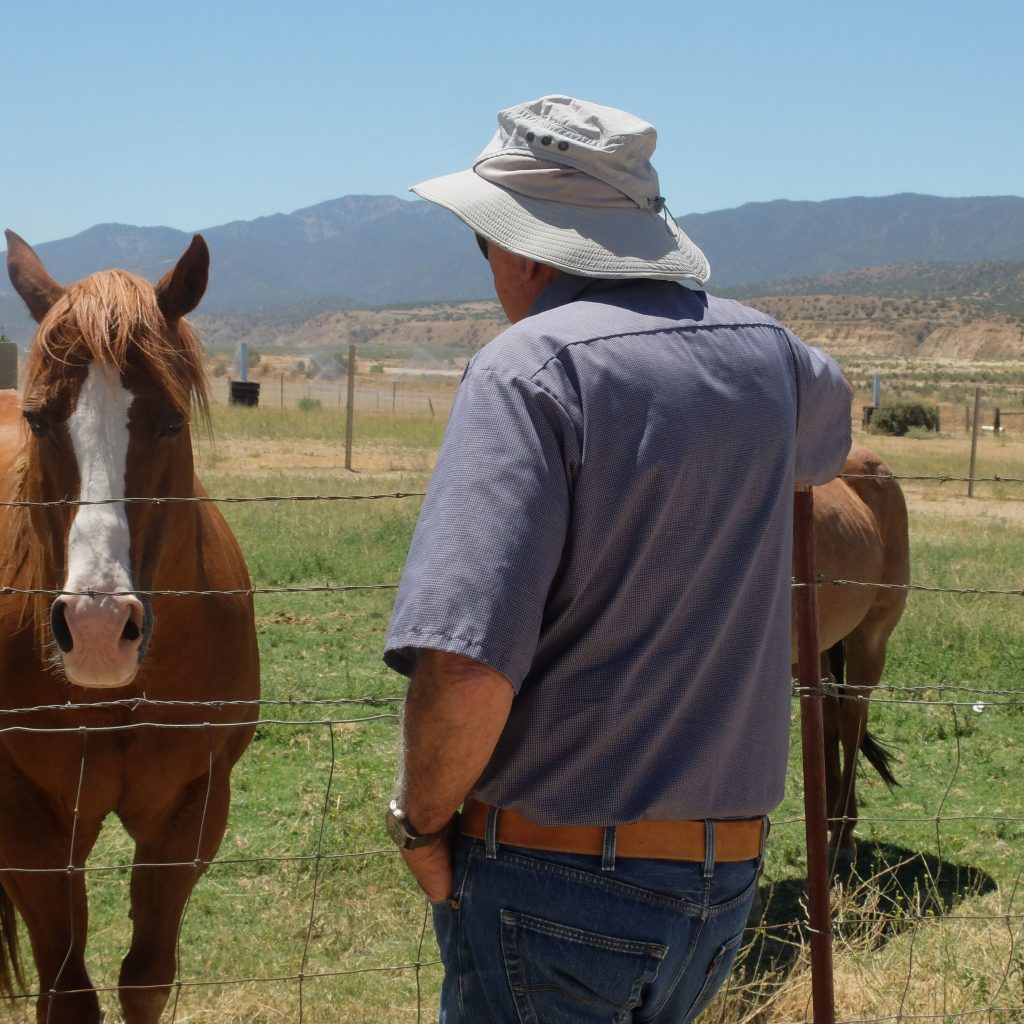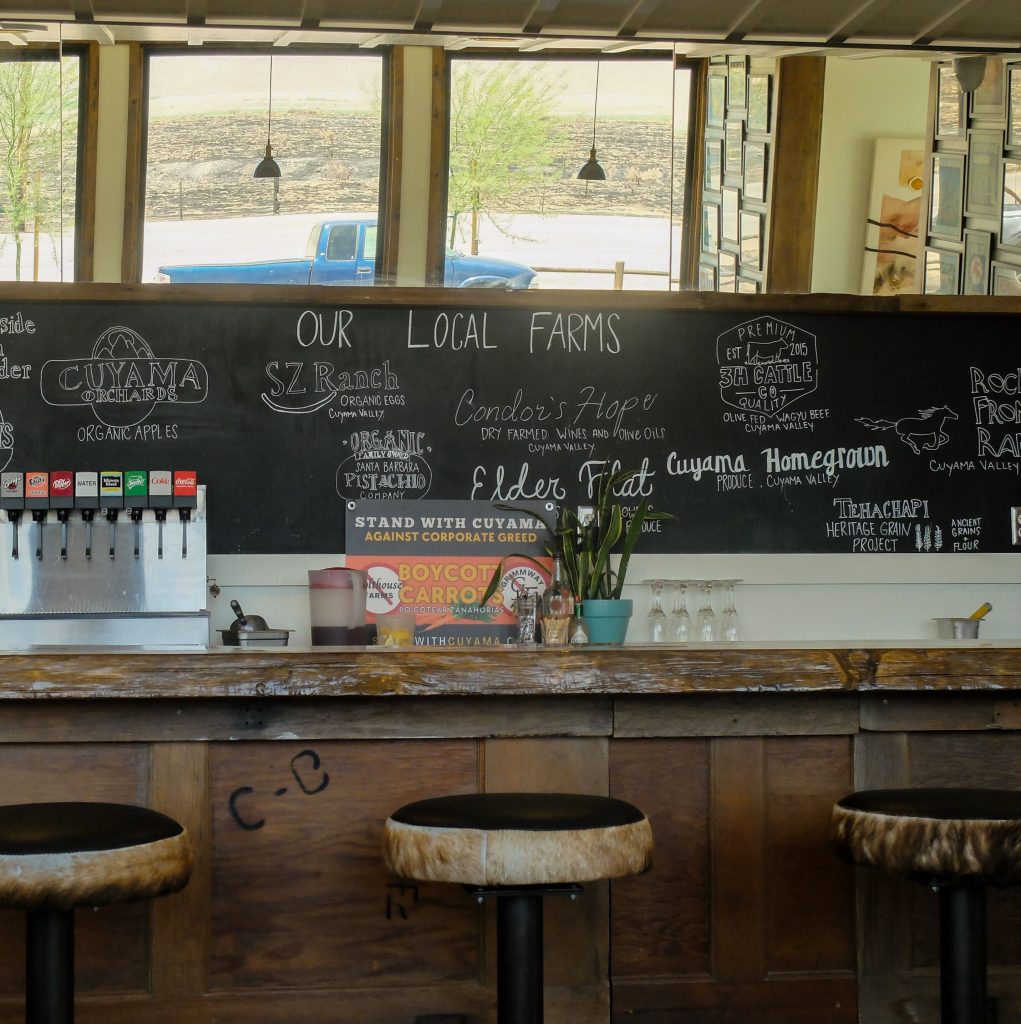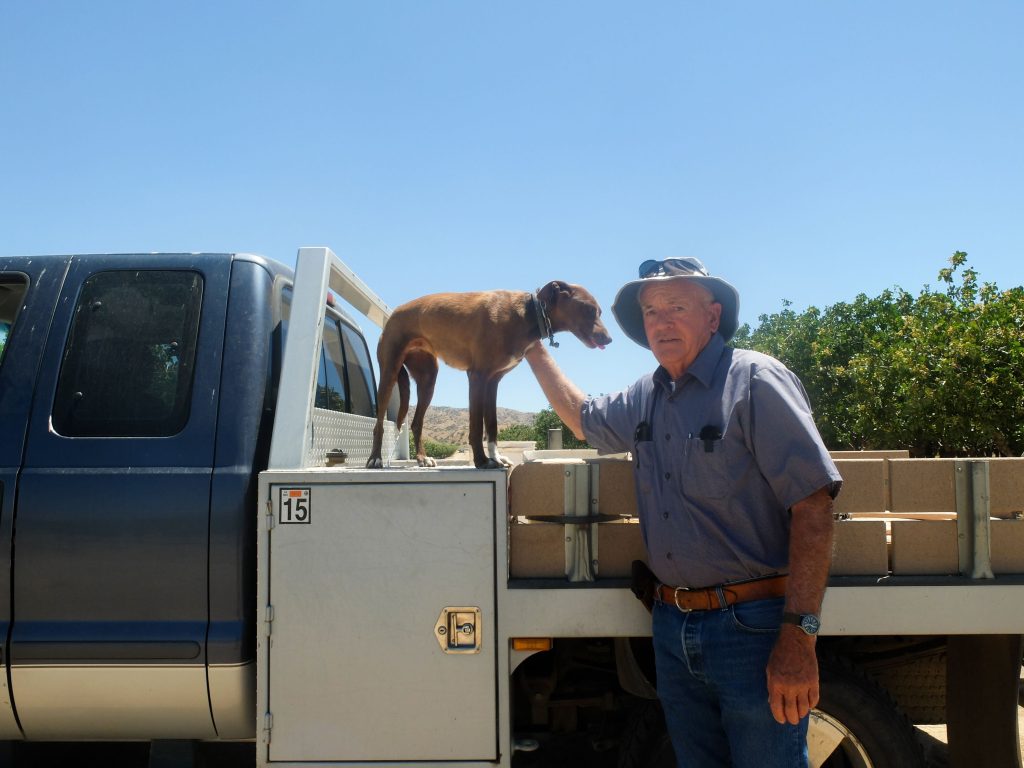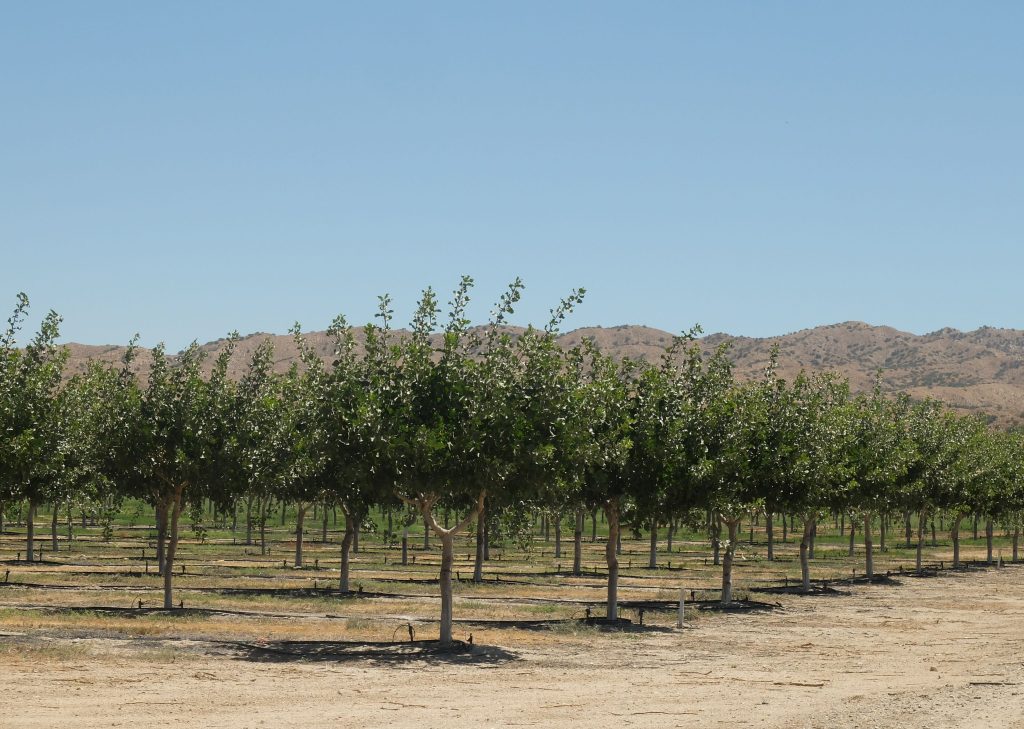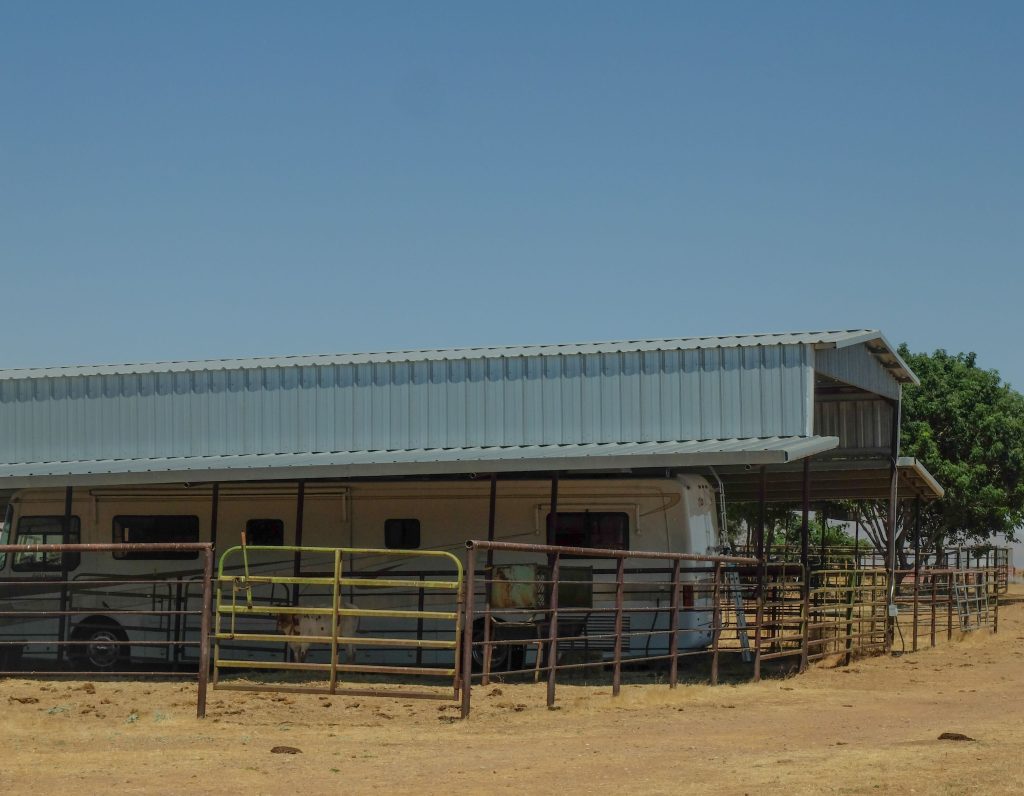The Cuyama Valley Water Wars, Part 2
Story by Rosie Bultman and Joyce Chi || Photos by Joyce Chi || Listen to the story on SoundCloud || Link to Part 1
—
BOSMA: We’ve been attacked by people who’ve claimed they’ve been neighbors for decades. And people who’ve done nothing but deplete everything in our community.
WEGIS: The main thing is it really has caused a lot of stress. I know some retired people that have taken money out of their savings account. It is very emotional for people, especially how it affects your pocketbooks and your livelihood.
The residents of Cuyama Valley are at risk of losing their water rights.
In 2021, two major carrot growers in the area – Grimmway Farms and Bolthouse Farms – filed a lawsuit against Cuyama residents over water usage. This type of lawsuit is called adjudication, and it tries to determine how much water from a basin someone owns and can use.
Grimmway Farms and Bolthouse Farms initially claimed the adjudication lawsuit was a fair process to determine how to responsibly distribute water, a claim that residents – and experts – dispute.
KCSB News has been exploring the Cuyama Valley water wars, and will be airing a two part feature on the topic.
In Part 1, we examined the background of this case: the land, the groundwater crisis, and the beginnings of the lawsuit. Today, in Part 2, we’ll discuss the lawsuit further, how residents fought back, and where the legal battle stands today.
I’m Joyce Chi. This is The Cuyama Valley Water Wars, Part 2.
–
To understand the water use lawsuit here, it’s important to also understand the background of the Cuyama Valley. If you haven’t listened to Part 1 yet, here’s a quick refresher on what the Valley’s like.
The Cuyama Valley is located within four counties in Central California: Santa Barbara, San Luis Obispo, Ventura, and Kern. It’s hot and dry, with open fields that stretch on to mountain ranges in the horizon. The Cuyama Valley community is small and impoverished, but very tight-knit – which isn’t too surprising, given that the Valley is home to just around 1,500 people spread across three “population centers” (not towns or cities). These are New Cuyama, Cuyama, and Ventucopa.
In the Cuyama Valley, with an annual rainfall of just eight inches, groundwater is everything. It’s the only source of water for the region’s domestic, agricultural, and municipal purposes. According to the United States Geological Survey (or USGS), the sheer amount of groundwater taken up since the 1940s means that the water remaining underground has decreased by as much as 300 feet.
The USGS also says most of this groundwater goes to irrigating agricultural crops. While there are smaller, private farmers in the Valley – like Jim Wegis, there are two growers whose production and profits dwarf others: Grimmway Farms and Bolthouse Farms.
Both their produce of choice is carrots. In fact, The Santa Maria Sun reports that at least eighty percent of all carrots in the U.S. are produced by Grimmway and Bolthouse (Grimmway Farms is actually the largest carrot producer in the world).
Maybe you’re familiar with their products – I know I’ve definitely seen Grimmway’s baby carrots in the grocery store before, with that bold white font and green banner at the top.
It’s safe to say then, that in the world of carrots, Grimmway Farms and Bolthouse Farms are titans. The residents of Cuyama Valley, like rancher Jake Furstenfeld, are no stranger to that.
FURSTENFELD: The fight, it’s not fair. It’s completely out of hand. That’s why we call it David vs. Goliath.
Jake is referring to the adjudication lawsuit launched by Grimmway Farms and Bolthouse Farms in 2021.
On August 17th of that year, Bolthouse, Grimmway, and the property companies that lease farmland to them filed a complaint in the LA County Superior Court against, quote, “all persons claiming a right to extract or store groundwater in the Cuyama Valley Groundwater Basin,” end quote.
We mentioned earlier that the Valley’s groundwater has been severely depleted over time. In fact, the Cuyama Valley basin is considered “critically overdrafted,” one of 21 such basins in California.
As part of a landmark state bill passed in 2014 called the Sustainable Groundwater Management Act (or SGMA), Cuyama Valley had to form a Groundwater Sustainability Agency (or GSA), and they were tasked with creating a Groundwater Sustainability Plan (or GSP). [You can hear more about this in Part 1.]
The Cuyama Basin GSA is made up of a Board of Directors – mostly of local county politicians and representatives of water agencies – and also a Standing Advisory Committee of local residents. Jake Furstenfeld’s a part of that committee.
FURSTENFELD: It was important for me to see how bad it was or what we’re up against…4:05 I’ve never been to college or anything like that. I graduated Cuyama High School and went to the army, Learned this lingo. Figure out what exactly is going on, looking at all these hydrographs, long meetings.
BOSMA: Like Jake Furstenfeld, he was not paid to be there. He’s just trying to do what’s right to help guide us through a really tough process.
But if you listened to Part 1, you know by now that on that voting Board of Directors – it wasn’t just local officials. There were also representatives from Grimmway Farms and Bolthouse Farms. Jake says these representatives have stayed on the Board, even throughout the adjudication lawsuit.
For instance – the agenda from Cuyama Basin GSA’s most recent meeting on July 31st, 2024 lists Derek Yurosek as the Vice Chair of the Board of Directors. Yurosek, whose grandfather invented baby carrots, is one of many representatives from the Cuyama Basin Water District – where he’s actually the President – but he was also once a Vice President at Bolthouse Farms for 14 years, from 1997 to 2011 (before SGMA and the GSP came into play).
That’s according to his LinkedIn and his biography on the website for Bolthouse Properties, on which he’s the Director of Agriculture and Natural Resources.
Though they have an overlapping history, as the name suggests, Bolthouse Farms said in a statement that they’re completely separate from and unrelated to Bolthouse Land Company, which is still a plaintiff (since they lease land to Bolthouse Farms).
I know the Bolthouse name is becoming repetitive at this point, but hang in there. Because the thing is – Bolthouse Properties and Bolthouse Land Company are the same.
Bolthouse Farms said as much in that statement, AND the website for Bolthouse Properties lists Bolthouse Land Company under its “agriculture” section. Not to mention, they both have the same president, Anthony Leggio, who also previously served as Bolthouse Farm’s general counsel. That information comes from company websites and filings with the California Secretary of State.
So, TL;DR: the Vice Chair of the decision-making body for the Cuyama Basin’s approach to groundwater sustainability also works for a company with deep ties to the ongoing adjudication lawsuit. And by the way, Derek Yurosek was previously the Chair of the GSA, until he was voted out in May 2023.
Yurosek did not respond to our requests for comment.
Grimmway Farms themselves have acknowledged their relationship to the GSA. In a statement from October 2023, Grimmway Farms said they, quote, “were a leader in organizing the Cuyama Basin Water District and the Cuyama Basin Groundwater Sustainability Agency,” end quote.
Here’s what Jake had to say about working with representatives of Grimmway and Bolthouse.
FURSTENFELD: They obviously were going for things that they wanted for their company and their companies’ best interest…With the adjudication and them being on the board, how are they influencing and playing the game there? So there seems to be in everybody’s mind, there’s a huge conflict of interest there.
Nevertheless, after years of work, the Cuyama Basin’s GSP was passed in December 2019. It was updated in 2022, but both versions have the same main finding: quote, “current analysis indicates groundwater pumping reductions on the order of 50 to 67 percent may be required basin-wide to achieve sustainability,” end quote.
FURSTENFELD: I would say getting cut back was probably one of the biggest components for them to be like, “okay, we’re not getting what we want through this process. Our last ditch effort is to adjudicate instead of this public process.”
Despite being involved in the drafting of the GSP, Grimmway Farms and Bolthouse Farms still decided to launch this adjudication lawsuit against water users in the Valley – that includes all residents and the local school districts too.
Here’s Jake Furstenfeld.
FURSTENFELD: I’d say the first initial thing was everybody was scared. As time gone on, people became mad and upset at Grimmway and Bolthouse, wondering, “how can they do this? They’re the ones that are the biggest water pumpers in the valley. They’re the reasons why we’re in this situation. It’s not what everybody else is doing.”
Grimmway Farms said the lawsuit was, quote, “due in part to strong political opposition to exploring equitable long-term solutions at the CBGSA board” and that their intention “was to ensure an equitable allocation of water basin-wide,” end quote. The water cuts currently only apply to the Central Basin, but residents believe that Grimmway and Bolthouse want to spread these cuts to the entire basin.
BOSMA: I felt like our entire valley got sucker punched by two large corporations.
That’s cattle rancher and retired sheriff’s deputy Charlie Bosma.
BOSMA: Grimmway and Bolthouse are the equivalent of carrot versions of Pepsi and Coke. These guys are generally rivals in the business industry. To see them come together with the landowners for their properties and file this lawsuit jointly, I think to me – it’s a perfect picture of corporate greed overtaking everything else….They’re willing to overlook all of that to sue all these people in their valley to try to have a bigger slice of the water pie.
But, as UCSB Professor Casey Walsh said in Part 1, adjudication is unnecessary.
WALSH: The Sustainable Groundwater Management Act includes within itself everything that is needed to manage groundwater sustainability in a basin.
But even so, residents of the Cuyama Valley were left without a choice. If they wanted to keep their water rights, they had to participate in the lawsuit. Though some residents are taking their chances and not participating in the lawsuit, just as many have hired high-priced lawyers specialized in water usage to advocate for them.
BOSMA: 20 years in law enforcement, somewhat familiar with the legal system in general, at leas the criminal side of it fairly well. And basically, once I got done trying to figure out how to do it, I realized that it was impossible for me to represent myself.
That’s Charlie Bosma again. He says that because of the distance, filing in the LA County Superior Court also complicated chances of representing yourself.
BOSMA:I know of nobody who successfully has represented themselves that is not an attorney. It forced every person here to either go get an attorney and represent yourself or just, “hey, I’ll take whatever you guys decide.”
Charlie says that for almost two years now, he’s likely paid over 15 thousand dollars for an attorney who’s representing around 30 other people too.
Jim Wegis, the pistachio and olive farmer, says his legal representation follows a similar model.
WEGIS: There’s 10 growers from up the road. We have formed a group, and we have hired attorneys. So those attorneys are representing 10 of us. And it’s the majority of the people that farm in this Ventucopa area.
The local school district also had to hire attorneys, and the Superintendent told the LA Times that their legal fees have surpassed 28 thousand dollars.
In a statement from October 2023, Grimmway Farms said they are, quote, “not in favor of cutting the water rights of the Cuyama Community Services District, the Cuyama Valley High School, or small residential water users,” end quote.
WEGIS: Grimmway and Bolthouse want everybody in the basin to take equal cuts to bring the basin into sustainability.
This is despite the fact that Grimmway Farms and Bolthouse Farms are by far the largest water users in the Cuyama Valley. As the Santa Barbara Independent explains, Bolthouse Farms and Grimmway Farms pump more than 20 thousand acre-feet of water out of the basin each year (As for all extractors, that number increases in drought years.)
And – in 2022, Grimmway and Bolthouse pumped enough groundwater to meet the annual supply for three cities the size of Santa Barbara.
Charlie Bosma says that in his opinion, despite the passage of the GSP, Grimmway and Bolthouse continued to pump more water.
BOSMA: If you’re a responsible person and you sit in this valley and you’re like, “okay, we need to cut back on water usage.” What’s the last thing you should do? I shouldn’t plant more trees. I shouldn’t go buy more cows. I should be responsible about cutting back. That’s the opposite of what they did. They plowed more, tilled more, opened up more ground, started using gross amounts of water because they know that the water cutbacks are going to be allocated on water.
You can watch them water dirt in the middle of July. It’s insane to watch…Is it to accomplish something? I’m sure they can come up with some rational explanation for every time a droplet hits the ground. When you water with overhead sprinklers in the summer, such a small fraction of that water actually makes it in the ground. It is such an atrocious waste.
Both Grimmway Farms and Bolthouse Farms declined to comment for this story. But Charlie’s claims follow the idea of historical use – the amount of water you get reflects the amount of water you used. Professor Casey Walsh says the principle of historical use has long been used in adjudication, but could cross over into the GSP implementation.
WALSH: There’s some sense among people who have participated in this that historical use as an idea has become favored in the SGMA process, because it will line up with what the adjudication process is going to be based on.
This is despite the fact that SGMA seeks to avoid allocations based solely on historical use.
WALSH: It wouldn’t reward the inefficiency of the past by basing future allocations on those inefficient groundwater uses in the past.
Meanwhile, Jim Wegis is frustrated that he’s even included in the lawsuit.
The Cuyama GSP established the Ventucopa Management Area and the Central Management Area. Jim lives in Ventucopa, and, as part of his legal battle, he’s seeking to prove that his water supply from the Ventucopa Basin is separate from the Central Basin water used by Grimmway and Bolthouse. Remember, it’s the Central Basin — the most overdrafted one — that’s been under the water restrictions.
The US Geological Survey says that groundwater samples suggest that water does not move freely between the Cuyama Valley’s sub-basins. Jim Wegis says that experts have been brought in to determine if the Santa Barbara Canyon Fault is permeable and allows for water to move, a fact that will determine his future in the lawsuit.
WEGIS: So you hire experts. They have experts, we have to hire experts. And they’re drilling monitoring wells. We have a well drilled, I allowed them to drill a well right 100 yards from here. Actually it’s three wells, one and they drilled one down the right on the other side of the highway. You passed a rig that they’re drilling, then they’ve done that in several other places in the valley trying to see how much water goes through. If any water goes through, there’s the permeability factor. Nobody knows exactly what that fault. I mean, we spent millions of dollars just studying that fault.
The more and more information you get, the easier it is to convince the judge. It’s not just my word against yours. They will have facts to back this up.
Jake Furstenfeld confirmed that he’s heard similar complaints from other residents using water not from the Central Basin.
FURSTENFELD: We’re not all overdrafting. That’s why there’s only one management area currently in the Cuyama Groundwater Basin, and that’s the Central Management Area, which Grimmway and Bolthouse farm in.
For three years now, the residents of Cuyama Valley have defended themselves in the adjudication lawsuit brought by Grimmway Farms and Bolthouse Farms. But their resistance isn’t just limited to courtrooms.
BOSMA: My opinion is that the only way that we are going to get corporations like them to reconsider their decision-making is if we affect them financially. Which is why we’re asking people to boycott carrots.
Around the Valley, you’ll see many of the same orange and black signs and stickers that read “Stand with Cuyama against corporate greed. Boycott carrots.”
Stand With Cuyama is a movement organized by locals calling for the boycott of carrots produced by Grimmway Farms and Bolthouse Farms. They’ve also created a change.org petition that has nearly 9,500 signatures.
The petition makes three demands for Grimmway and Bolthouse: to stop overpumping the Cuyama Valley basin; to reimburse locals for legal fees incurred in this adjudication process; and to go back to the GSP and to put pressure on the remaining plaintiffs to drop the lawsuit (more on that later.)
Here’s what Charlie Bosma had to say about Stand With Cuyama.
BOSMA: We as a community needed to do something to raise awareness to what was going on and ask people to reconsider their choices because of what they’re doing to our community. And I think a lot of us believe that if they’re successful, they will destroy this community.
I feel like if we can continue to put pressure on them, that’s gonna be the only way we get them to acquiesce and drop this – not a legal term, personal opinion – completely frivolous, bullshit lawsuit.
The carrot boycott is still active – even though Grimmway Farms and Bolthouse Farms actually dropped out of the adjudication in October 2023 and November 2023, respectively.
Grimmway Farms said in a statement that they pulled out of the lawsuit because of the overwhelmingly negative response from locals, writing, quote, “our relationships with the residents of Cuyama are more important and valuable to us than this court case,” end quote.
Meanwhile, Bolthouse Farms expressed similar sentiment, but also told the LA Times that they had recently, quote, “re-evaluated its involvement in the adjudication and believe that, given our existing actions to reduce water, it no longer makes sense to continue as a plaintiff in this lawsuit,” end quote.
But the lawsuit is still ongoing, with four plaintiffs: Diamond Farming Company, Lapis Land Company, Ruby Land Company, and Bolthouse Land Company.
We reached out to these companies for comment, but have not heard back.
Both Grimmway Farms and Bolthouse Farms do NOT own the land they farm on – they lease it from those property companies.
We already discussed Bolthouse Properties-slash-Bolthouse Land Company, and how one of their Vice Presidents still sits on the Cuyama Basin GSA’s Board of Directors; how their President was once the general counsel for Bolthouse Farms; etcetera.
According to Legal Planet, Grimmway Farms also inherently has shared interests with these landowners (Diamond Farming; Lapis; and Ruby), because it’s the landowners who typically hold the rights to groundwater.
The New Times of San Luis Obispo further wrote about this relationship. Lapis Land Company and Ruby Land Company are managed by Legacy Farm Management. Three of the managers of Legacy Farm Management have close ties to Grimmway Farms: Barbara Grimm-Marshall was the co-owner of Grimmway Enterprises; Brandon Grimm is the general manager of grower relations for Grimmway Farms; and Jeffrey Meger was the president for Grimmway Farms until 2016.
All are managers at Legacy Farm Management.
However, Dana Brennan, Grimmway’s vice president of external affairs and corporate responsibility, says that, quote “None of the individuals on the list provided by the New Times are current officers or directors of Grimmway Enterprises,” end quote.
Here’s Charlie again.
BOSMA: There’s a whole lot of inbreeding there, in the sense of what everybody possesses.
Regardless, for the residents of the Cuyama Valley, it doesn’t matter who dropped out or who’s still in. The adjudication lawsuit is still ongoing – and so is the carrot boycott.
BOSMA: Us raising awareness on what’s going on is not favorable to them. And to see those two entities drop out, I think we were hopeful that we were coming to the table on ending and resolving this situation. But the reality is that we’re not, because the other two entities are just plowing forward, and this keeps going.
That’s why, Charlie says, the boycott will continue until the adjudication lawsuit is fully dropped.
BOSMA: Carrot cake’s my favorite dessert. I haven’t had it in two years. We don’t eat carrots. My own daughter will pick the carrots out of the pot pie from Costco and leave them on the side of the plate. She’s nine.
A nonjury trial has been scheduled for February 2025, where they’ll discuss safe yield, the amount of water people can pull out of the basin. But Professor Casey Walsh says to understand the future of the lawsuit, we have to also come to terms with the future of our natural resources.
WALSH: The adjudication will go forward. People will spend a whole bunch of money. The companies are going to try to get as much water out of the ground as possible for as long as possible. // The big vision is that we as a society, as a state… We have to transition to a more sustainable form.
Three years in, Jim Wegis and Charlie Bosma are cautious, yet determined to fight for their water rights.
BULTMAN: So what do you think it would take to have the ideal outcome of this lawsuit?
WEGIS: The grace of God on our side. We’re doing everything we can to make them see. It’s the unknown factor that’s really causing a lot of stress and animosity. That’s the biggest thing, because you can talk to anybody in this valley anytime, and water will come up. It didn’t use to be that way.
BULTMAN: If Grimmway and Bolthouse win, what do you expect to happen?
BOSMA: I feel like it will cause a lot of people to have no other choice but to look elsewhere, and when you have to look elsewhere, we’re gonna lose families.
We just want to survive. We want to be able to use the water beneath us to responsibly live our lives.
Thank you for listening to The Cuyama Valley Water Wars. You can find Parts 1 and 2 on Spotify, SoundCloud, and Apple Podcasts.
With KCSB News, I’m Joyce Chi. This story was also made possible by KCSB’s Rosie Bultman.

